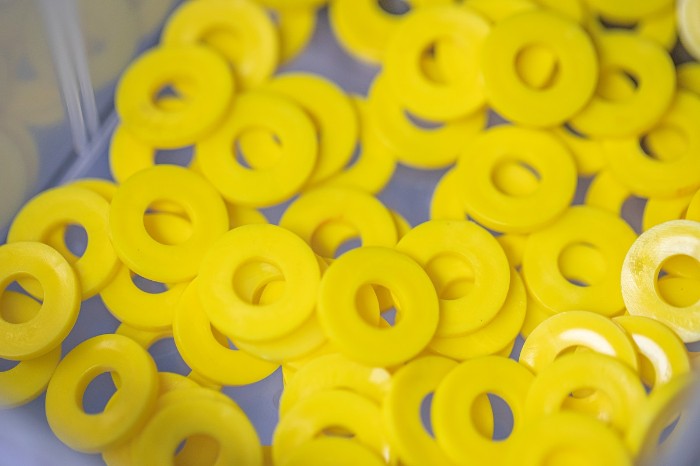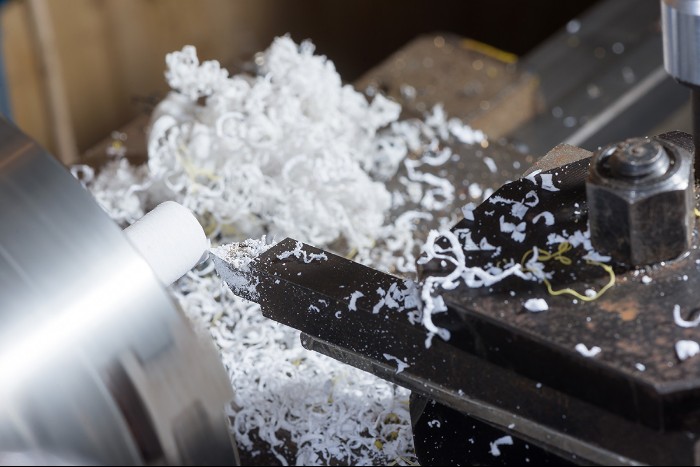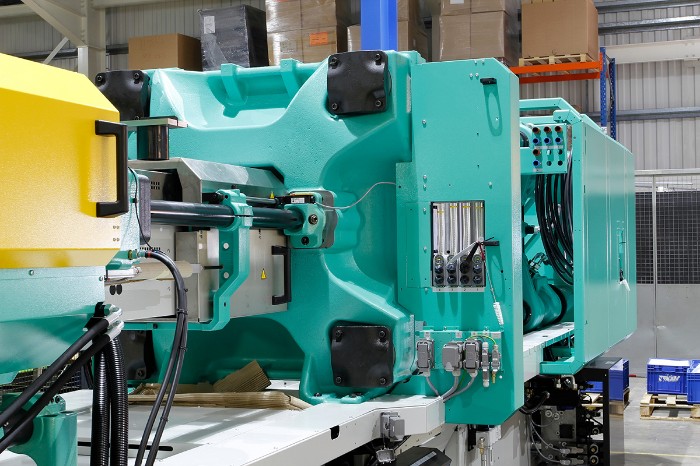Production Methods
Based on the application of the plasstic parts and fasteners, the properties of the material and the quantity we select the most suitable manufacturing processes. These include, for example, plastic injection moulding, punching, turning, milling, water jet cutting and dip moulding.
Experience You Can Rely On
Experience is irreplaceable – and it is the foundation of our production expertise. With decades of know-how, we offer the right manufacturing methods tailored to your requirements. Our sales team supports you with professional advice and technical knowledge to help you select the most efficient process.
Plastic Injection Molding
Plastic injection molding is primarily used for medium and large series production. Depending on the cavity, conventional injection molds or unscrewing molds for threaded parts are adapted to the machine size to achieve the best price-performance ratio. Depending on the component, 2 to 100 or more cavities per mold are possible. For nearly 70 years, the production of technical plastic parts and plastic fasteners has been our core business.


CNC Turning & Milling
These manufacturing methods are particularly suitable for small to medium series, tailor-made plastic components based on drawings, and special materials such as PTFE:
- CNC Turning – high-quality components produced on CNC automatic lathes or turning machines.
- CNC Milling – with modern tool magazines, perfect for small to medium workpieces.
Parting-Off (Milling)
Parting-off is a process where plastic parts such as screws, spacers, or axles are produced by removing material with a milling cutter or knife. Manufacturing takes place on automatic lathes or CNC-controlled machines, ensuring high productivity and precision.
This production method can be used for small, medium and large batches of plastic parts that are used in the automotive, aerospace, medical technology, electronics, household appliances, construction, agricultural machinery, defense or electrical industry.
Stamping & Stamped Parts
Stamping is mainly used for medium to large series. Soft materials with different Shore hardness can be processed. We manufacture seals and stamped parts from: EPDM, rubber, NBR, SBR, silicone, soft PVC, vulcanized fiber, foam rubber, neoprene, Nobest (heat-resistant), polyamide, POM, PTFE, and more.
Water jet cutting
Water jet cutting compresses water at 3,000–4,000 bar and presses it through a nozzle of about 0.2 mm. The result: a razor-sharp jet that cuts even the most difficult materials with ease. The high-precision process ensures straight, deformation-free cut surfaces, eliminating rework in most cases. Unlike traditional tooling, there are no mold costs, only occasional programming costs.
Insert Molding – Overmoulding
Plastic-metal screws and plastic-metal nuts are produced by overmolding metal inserts with special head screws or nuts. These inserts ensure strength and prevent stripping. We use inserts made of steel, stainless steel (V2A), brass, and sometimes aluminum or titanium. Applications include operating elements. Besides different types of wing screws Bülte offers hex screws with metal threads, various knurled head screws, and cross-handle plastic screws with metal threads.
Dip Moulding
Dip moulding is a highly economical production method. Metal blanks are dipped into a PVC bath, and after polymerization, the shape of the protective cap corresponds exactly to the dipped blank. This process is fast, cost-efficient, and ideal for custom PVC caps. We also offer a complete range of standard soft-PVC caps.
Surface Finish of Injection Molded Parts
The surface finish of a plastic component directly defines its appearance and aesthetics. It represents the final stage of part finishing. The choice of surface quality must already be considered during the design of the mould or tooling.
For our standard range of plastic fasteners and protective elements, no specific surface finish is predefined. Only certain ribbed plugs for tube end and handwheels as well as knobs are produced with a defined surface texture such as roughness or an EDM (electrical discharge machining) structure.
On request, we can manufacture plastic components with custom surface textures or polished surfaces according to customer specifications.

